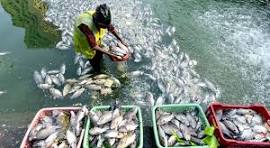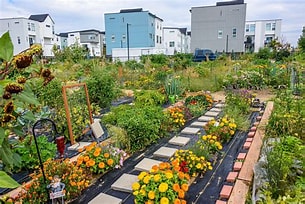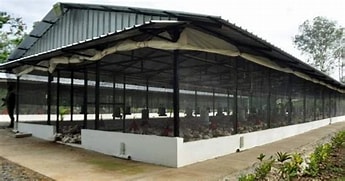Why Agriculture is the Solution to Nigeria Sinking Economy
Revitalizing Nigeria’s Economy: The Agricultural Lifeline, Nigeria economy has witness a drastic change from being an agricultural driven economy to a petroleum driven economy which is the main cause of the current food insecurity in the country and hyperinflation rated in the country.

Revitalizing Nigeria’s Economy: The Agricultural Lifeline
Nigeria’s economy, facing a myriad of challenges, finds a beacon of hope in its agricultural sector. With a rich history as the nation’s economic backbone, agriculture holds the key to not only stabilizing but also propelling the country towards sustainable growth.
Agriculture’s Role in Economic Stability Agriculture has been a cornerstone of Nigeria’s economy, contributing nearly 25% to GDP and employing 70% of the workforce1. It was the main export earner before the oil boom, and despite the shift to oil, agriculture remains a significant part of the economy. Reviving this sector is crucial for economic diversification, reducing dependency on oil, and curbing the volatility associated with global oil prices. The following are ways in which agricultural can revitalize the economy
Employment and Poverty Alleviation

The agricultural sector has the potential to absorb a large portion of Nigeria’s workforce, particularly in rural areas where poverty is most acute. By creating jobs and providing livelihoods, agriculture can lift millions out of poverty and stimulate economic activities in other sectors.
Revitalizing Nigeria’s Economy: The Agricultural Lifeline on Food Security and Trade Balance
As a net food importer, Nigeria’s reliance on imported goods contributes to its trade deficit. By boosting local production, the country can achieve food self-sufficiency, reduce import bills, and even transition to becoming a net exporter of agricultural products.
Revitalizing Nigeria’s Economy: The Agricultural Lifeline on Challenges and Opportunities
Despite its potential, the sector faces challenges such as inadequate infrastructure, climate change, and inefficient farming practices. Addressing these issues through investment in irrigation, adoption of modern farming techniques, and development of agri-business industries can significantly improve productivity12.
Government Initiatives and Policy Support

The Nigerian government has launched initiatives like the Special Agro-Industrial Processing Zones to boost the value addition of products1. Efforts to improve access to finance and promote research and development are also underway, aiming to enhance the quality of seeds and farming methods.
Conclusion
In conclusion, agriculture is not just a solution to Nigeria’s sinking economy; it is a strategic choice for a resilient and diversified economic future. By investing in agriculture, Nigeria can address immediate concerns like food security and unemployment while laying the foundation for long-term prosperity. The sector’s revival will require a concerted effort from the government, private sector, and international community, but the rewards promise a more stable and thriving Nigeria.
You May Also Like…
Making Money Online from Home in 2024
Ways Agriculture Can Save Nigeria Economy
Mastering Pivot Tables in Excel: A Guide to Simplifying Data Analysis


